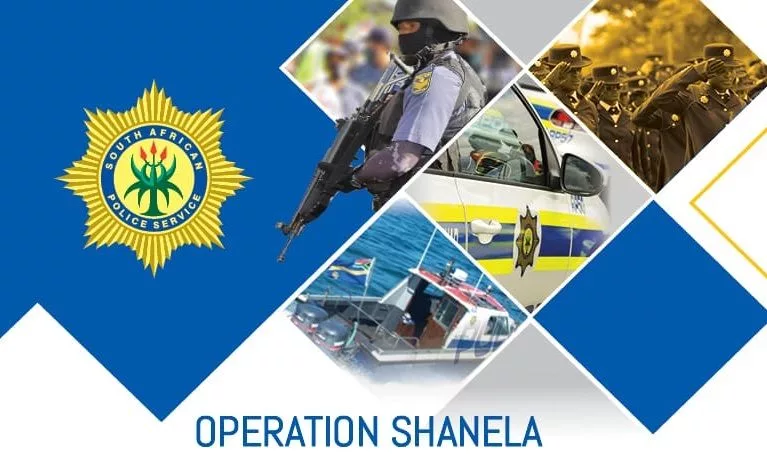South African leaders and mayors met for a two-day workshop to discuss international migration’s effects on local communities and identify areas for collaboration. The event was attended by key stakeholders, including government ministries, traditional authorities, and municipalities, who agreed on several areas of cooperation, such as policy changes, enhanced coordination, and supporting local economic development. The workshop’s collaborative environment signifies a positive step towards addressing national migration challenges and highlights the importance of joint efforts by all involved parties.
What were the outcomes of the international migration workshop with South African leaders and mayors?
During the two-day workshop, attendees discussed the effects of international migration on local communities and identified potential areas for cooperation. Collaboration was initiated among key stakeholders, including government ministries, traditional authorities, and municipalities. Several areas of cooperation were agreed upon, such as policy and legislative changes, enhancing coordination and data access, and supporting local economic development. The collaborative environment fostered during the workshop signifies a positive step towards addressing national migration challenges.
Building Connections and Sharing Experiences
South African ministers facilitated a groundbreaking workshop on international migration, initiating collaboration among key stakeholders. The event took place at the Birchwood Hotel in Ekurhuleni, Gauteng, and aimed to create a space for attendees to discuss migration’s effects on local communities and pinpoint potential areas for cooperation.
Engaging Key Ministries and Stakeholders
The Minister of Home Affairs, Dr. Aaron Motsoaledi, and the Minister of Co-operative Governance and Traditional Affairs, Ms. Thembi Nkadimeng, co-hosted the two-day workshop, which occurred on October 16 and 17, 2023. Representatives from other ministries, directly impacted by international migration, were present, such as the Department of Human Settlements, Small Business Development, and the Department of Trade, Industry, and Competition.
Additionally, the Public Service Commission Chairperson, Border Management Authority Commissioner, and SA Local Government Association President attended the workshop, joined by numerous mayors and speakers from different municipalities. Traditional and Khoi and San Leaders were also among the attendees.
Identifying Collaborative Opportunities
Several areas of cooperation were agreed upon during the workshop to ensure efficient migration management. These areas include:
- Reassessing international agreements, such as conventions and protocols, to make accessions and reservations as needed, keeping national interests in mind.
- Policy and legislative changes, including modifications to the Citizenship Act, Identification Act, Refugee Act, and Immigration Act.
- Implementing Omnibus by-laws to encourage standardized and effective enforcement by all municipalities, addressing challenges related to trading and enforcement of business by-laws by municipalities and traditional authorities.
- Enhancing coordination and access to data necessary for effective socio-economic development planning based on migration patterns. The government will aid in reinforcing planning units in municipalities for better alignment with current trends.
- Conducting audits of spaza shops in villages and townships and establishing mechanisms for registering them by traditional leaders and municipalities.
- Revising the Prevention of Illegal Eviction from and Unlawful Occupation of Land Act to enable effective implementation in situations of illegal land occupation.
- Reinforcing Local Economic Development (LED) by assisting citizens interested in trading in the informal sector, amending business licensing legislation, and promoting the assignment of LED Officers who interact with traditional authorities.
- Supporting the Department of Human Settlements’ process of revisiting the 1994 White Paper to address current needs and challenges related to informal settlements and illegal occupation of buildings in inner cities.
- Facilitating collaboration and coordination on border law enforcement between government, traditional and Khoi-San leaders, and the Border Management Authority (BMA).
- Assisting traditional authorities in maintaining records of foreign nationals in their communities.
- Reevaluating resource allocation for municipalities to handle unique resource pressures and enhancing their capacity for data analysis.
- Forming a working group that will convene regularly to monitor progress made by various entities and government departments, ensuring a comprehensive approach to managing international migration and its consequences.
Fostering a Collaborative Environment
The South African Local Government Association (SALGA) has already issued a statement on the workshop, echoing the collaborative spirit and partnership encouraged during the event. This development signifies a positive step towards addressing national migration challenges and highlights the necessity of cooperation among key stakeholders. As more participants join the effort, the joint approach to addressing international migration issues is sure to become increasingly effective and far-reaching.
What was the purpose of the international migration workshop in South Africa?
The purpose of the two-day workshop was to bring together key stakeholders, including government ministries, traditional authorities, and municipalities, to discuss the effects of international migration on local communities and identify areas for collaboration.
Who attended the workshop?
The workshop was attended by representatives from various South African ministries, including the Ministry of Home Affairs and the Ministry of Co-operative Governance and Traditional Affairs, as well as traditional and Khoi-San leaders, mayors, and speakers from different municipalities.
What areas of cooperation were agreed upon during the workshop?
Several areas of cooperation were identified during the workshop, including reassessing international agreements, implementing policy and legislative changes, enhancing coordination and data access, supporting local economic development, and establishing mechanisms for registering spaza shops and maintaining records of foreign nationals in communities.
What is the significance of the collaborative environment fostered during the workshop?
The collaborative environment fostered during the workshop signifies a positive step towards addressing national migration challenges and highlights the importance of joint efforts by all involved parties. As more participants join the effort, the joint approach to addressing international migration issues is sure to become increasingly effective and far-reaching.
What did the South African Local Government Association (SALGA) say about the workshop?
SALGA issued a statement on the workshop, echoing the collaborative spirit and partnership encouraged during the event. This development signifies a positive step towards addressing national migration challenges and highlights the necessity of cooperation among key stakeholders.
What policy and legislative changes were discussed during the workshop?
Policy and legislative changes discussed during the workshop included modifications to the Citizenship Act, Identification Act, Refugee Act, and Immigration Act, as well as revisions to the Prevention of Illegal Eviction from and Unlawful Occupation of Land Act.
How will the government aid in reinforcing planning units in municipalities?
The government will aid in reinforcing planning units in municipalities for better alignment with current migration trends, ensuring efficient socio-economic development planning based on migration patterns.
How will the workshop’s outcomes address challenges related to trading and enforcement of business by-laws by municipalities and traditional authorities?
To address challenges related to trading and enforcement of business by-laws by municipalities and traditional authorities, the workshop recommended implementing Omnibus by-laws to encourage standardized and effective enforcement by all municipalities.








